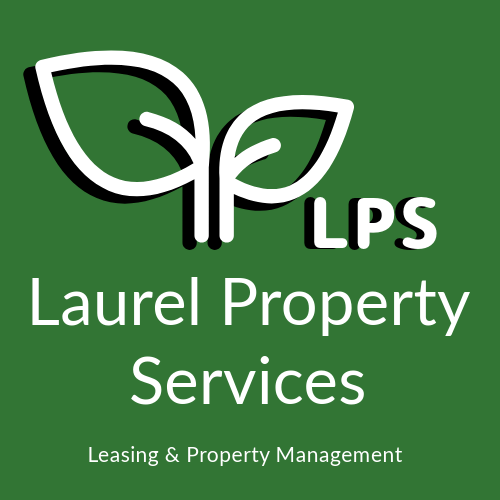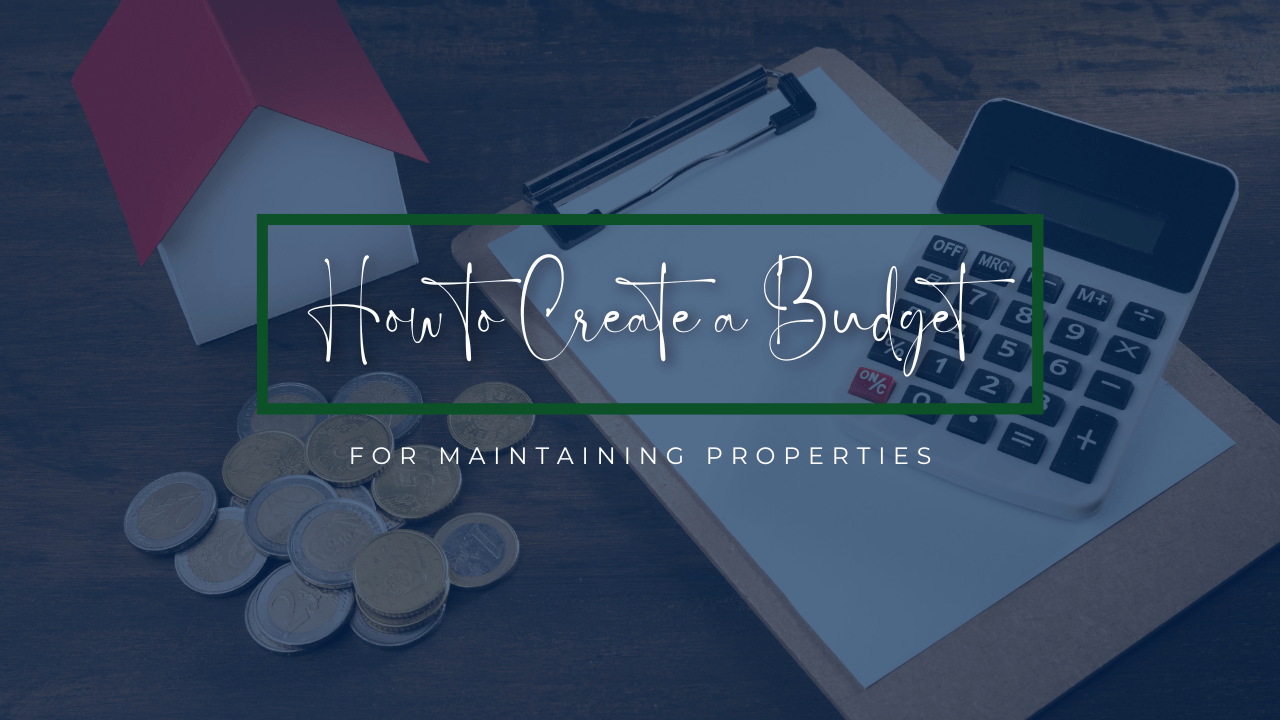Every Golden, CO rental home will require maintenance at some point. This is a fact of homeownership; repairs and replacements will be necessary no matter who is living in the home. When you have tenants renting your property, you can expect wear and tear. Appliances will get old and systems will break down. You might need to invest heavily in maintenance before you make the property available on the rental market. You’ll absolutely need to spend some money on maintenance during tenant turnovers.
You need to be prepared, and you need to budget. Maintenance is often the largest expense that real estate investors face when they’re buying and renting out residential homes.
We recommend that you put together a reserve fund or a budget for the routine and emergency maintenance that will be required.
How much is enough?
That will depend on the type of property you’re renting out. There are differences to how you maintain a single-family home and a multi-family property. You’ll budget differently and schedule work depending on the unique needs of your investment.
Create a maintenance budget that accommodates the emergency repairs you don’t see coming, the routine repairs that are generally easy to manage, and the preventative maintenance that will ultimately keep your maintenance costs down.
Here are some of the best ways to budget and even plan for unexpected repair costs that always seem to be more expensive than those preventative maintenance calls.
Good Budgeting Requires Good Data: Tracking Expenses
When it comes to deciding how much to budget for maintenance, different owners use different formulas. Some owners use the 1 percent formula, which is to put aside one percent of what your rental property is worth. If you have a rental home valued at $350,000, you’ll designate $3,500 a year for repairs and improvements.
Other investors prefer to use a 10 percent method, where they’ll save 10 percent of their monthly rental income for potential maintenance issues. If your property rents for $3,000 a month, you’ll save $300 every month for possible repairs.
What you should do first, however, is take a look at what you spent last year on maintenance. A historical record will help you anticipate this year’s repair needs.
You can learn a lot from your past budgets. Take a look at your financial statements from last year. Did you spend more than you thought you would? Was it because of inflation or did you not anticipate the need for updated plumbing or a new roof?
You need to know how accurate your overall rental property budget was, and how close you came to earning and spending what you projected. Spend some time looking at budgets and financials over the last few years. How easily were you able to stay on track, and were there places that you wildly under-budgeted or over-budgeted?
This is the best starting point to create a new maintenance budget.
Pay close attention to the expenses and make adjustments for the new, upcoming budget. It seems like things will almost always cost more than expected, so this review should give you a good idea of what you’ll have to spend in the coming year.
Don’t forget inflation when it comes to maintenance budgeting.
For example, you’re likely paying more for pest control than you did a year ago. You’ll likely pay even more in the coming year. You can expect that materials, labor, and supplies are more expensive.
If you just bought the property we suggest you have a savings equal to 3 months’ worth of rent in case anything large breaks and needs to be replaced.
Planning for Unexpected and Emergency Repair Costs
Emergencies are expensive. You won’t know that your sewer line has ruptured until your tenant calls to report that water is everywhere and sewage is coming up through a toilet. You’ll have to fix it right away, and you can plan on spending thousands of dollars for an emergency that involves plumbing and water damage. If the home is not habitable, you’ll also need to pay for your tenants to stay elsewhere until the repairs are complete.
Heaters and furnaces can be expected to break down. When your tenants lose heat in the middle of a Colorado winter, you need to take care of that problem immediately. It’s going to come at a high cost.
Emergencies cannot be entirely prevented, and you’ll need an emergency fund for rental property repairs. Make sure you’re not in a position where you cannot pay for a repair that’s absolutely necessary and urgent.
Remember that the habitability laws require the following items to be repaired in a timely manner.
Landlords are required to make sure that their properties have:
- “Waterproofing and weather protection that are maintained in good working order on the roof, outside walls, windows and doors”
- Plumbing or gas facilities that are maintained in good working order and that complied with the applicable building codes when they were installed
- Running hot and cold water that are furnished to the appropriate fixtures in the property and are connected to the appropriate sewer system
- Functioning heating facilities that are in good working order and that complied with the applicable building codes when they were installed. (NOTE: There is no requirement that the landlord provide air conditioning or cooling systems of any sort)
- Electrical lighting that is maintained in good working order and complied with the applicable building codes at the time it was installed
- Common Areas (if any) that are reasonably clean, sanitary and free of trash, rubbish and debris, bugs and pests
- Appropriate extermination if needed to eliminate infestations of rodents or “vermin”
- An appropriate number of outdoor trash receptacles in good working order
- Floors, stairways and railings that are maintained in good working order
- Locks or security devices that are in good working order on all exterior doors and openable windows
- Compliance with building, housing and health codes applicable to the property, the violation of which would create a condition that materially interferes with the tenant’s life, health or safety
- Functioning appliances maintained in good working order
- No mold associated with dampness that would interfere with health or safety of tenant.
*this list was compiled by (“Warranty of Habitability | Colorado Legal Services”)
Budgeting for Repairs vs. Replacements in Golden Rental Homes
Here’s a question that often comes up when something breaks down: should you repair it or replace it?
The decision will impact your budget.
When a repair request is made or something breaks down, you’ll have to make a decision about whether it’s worth fixing or whether you should simply start over with something new.
This obviously depends on what you’re dealing with. If it’s a washing machine or a refrigerator, for example, do some quick math. If the appliance has survived more than half of its estimated lifespan and repairing it will cost more than 50 percent of replacing it, you’ll find it’s more cost-effective to replace it completely.
Consider your tenant retention strategy as well. If replacing a worn and dated dishwasher will keep your tenant happy and seem like an extra benefit, you may win yourself a lease renewal and avoid turnover costs at the end of the lease term.
Budgeting for Preventative Maintenance in Golden, CO Rental Homes
Preventative maintenance is an excellent way to save on repairs, and it also protects the condition of your investment property. Get service contracts in place for your appliances, your heating and air conditioning systems, and your landscaping.
When an expert is inspecting and servicing these things on an annual basis, you can be sure that small problems are caught while they’re still manageable and inexpensive. Have your gutters cleaned routinely and your roof checked seasonally. Make sure your tenants are changing air filters regularly. While you may have to spend a little bit on these inspections now, it will save you a lot of maintenance money in the long term.
Always remember that the term Maintenance means to maintain. Maintaining your property will help you avoid costly repairs in the future.
Golden Property Management and Vendor Relationships

When you’re budgeting for your Golden, CO rental property, you’re budgeting for many different types of maintenance needs.
All of the emergency repairs, routine fixes, and general replacements will require help from vendors and contractors. These will be your partners when it comes to protecting the condition and value of your investment property.
As you’re thinking about your budgeting process, you have an opportunity to evaluate the work your vendors are doing for you, and to explore other options if you feel you’re being charged too much or the quality of work is slipping.
Take a look at what it’s costing you to hire every professional you use, including:
- Plumbers
- Electricians
- Pool cleaners
- Landscapers
- HVAC service technicians
- Pest control providers
- Cleaners
- Painters
These costs should be fixed in your budget. When you contract with landscapers, you should be paying a specific service fee that does not vacillate. You don’t want your maintenance budget to fluctuate too wildly throughout the year otherwise it will be nearly impossible to budget.
When you’re working with vendors who you can trust and appreciate, you’ll want to keep them around. If you worry that you could be spending less, however, without sacrificing service quality, it’s worth it to look around. Maybe you’re not thrilled with the service you’re receiving. Perhaps you’re paying too much. In that case, take a hard look at what you’re paying. Maybe you can find better service for less money elsewhere.
Golden property managers can be a huge help here. We have relationships in place with a lot of the vendors and contractors you’ll need to effectively manage and maintain your rental property. It’s entirely likely that you’re paying more as an independent landlord than you’d pay as a property management client. This is due to simple economics; property managers provide a larger volume of work to vendors, and therefore, we get better pricing.
We can also make referrals. If you’re looking for a new landscaper or a more cost-effective painting crew, we likely have those resources and connections.
Good vendor relationships are essential for rental property owners. These professionals can help you budget for maintenance by providing high-quality work and good communication. They should tell you about what your property may need in the future.
Work with professionals who are licensed and insured and experts in their fields. When you have a plumber at the property to fix a small leak under a sink, ask the vendor to check out your other pipes, faucets, and hoses. This will help you ensure that everything is working properly, and you’ll get an idea of when you’ll have to make a big repair or replacement in the future.
If you’d like some help budgeting for maintenance, we’d love to share more resources and ideas. Please contact us at Laurel Property Services, Inc. In addition to providing property management in Golden, we also serve Wheatridge, Morrison, Lakewood, Arvada, and Genesee, CO. We can make sure your property is in excellent condition and your tenants are having a pleasant rental experience.



